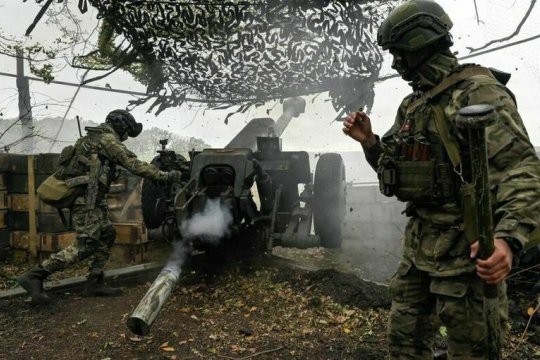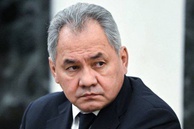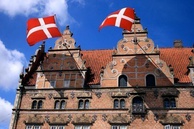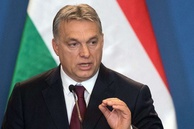The «trench reality» of Ukraine is becoming fraught with powerful political and economic consequences for Europe and the USA. The main point is that Ukrainian political leaders intend to continue the war in order to stay in power. Despite the forced mobilization, the flight of draftees from the country and the non-return of those who left, we need to acknowledge that there are still “passionaries” in the Ukrainian society that are proponents of the war. Kyiv understands that without a war it will lose everything and might even become deprived of a future. But, for all those Ukrainians who favor “the victory over Russia on the battlefield” the issue of resources – weapons and personnel - acquires maximum urgency. However, the “victory” slogan, according to Russian Foreign Ministry spokesperson Maria Zakharova, has changed into “don’t let Russia win”. As they say, feel the difference.
The issue of weapons has become an unpleasant one for the West. As it happens, liberal economy, the setting for blitzkriegs and remote warfare through the use of limited contingents against the a priori weaker opponents do not work in the conditions of confrontation with Russia. War victories were originally designed to be achieved through the hybrid methods of sanctions and economic collapse, through initiating domestic crises. But all these methods have yielded no success. On the contrary, they have hit on the initiators of the sanctions and have stimulated economic growth in Russia.
The West cannot keep up with the fast pace and extensive scope of race of the military – industrial complexes set by Russia. Despite this, Ukraine and the West are set on going on with the war. Kyiv believes that the main weakness comes from short-deliveries and types of weapons, while the West puts the blame on Ukraine’s resources.
What is clear is the intention to maintain a certain status quo – to deliver strikes with long-range weapons, to gain time for further militarization of Ukraine for the purpose of maintaining confrontation with Russia as a minimum, and for further strikes at the Russian territories as a maximum.
The issue of weapons delivery remains on the public agenda and is acquiring ever more urgency thanks to Ukrainian hysterics (top Foreign Ministry official Kuleba is ready, in the face of his fellow citizens, to fight against Russia with spades), on the one hand, and pledges to supply weapons and boost the production of weapons while continuously delaying their supplies, such as F-16 planes, on the other.
The issue of human resources in the Ukraine-Europe dialogue is rarely on the public agenda, supposedly because the non-public agenda includes preparations for a mechanism to secure the return home of a maximum number of Ukrainian refugees with a view to reinforce the Ukrainian Armed Forces. According to Bundestag Deputy Roderich Kiesewetter, of 220, 000 Ukrainians idling their time away in Germany we can form 10 brigades.[i] In addition to Kiesewetter’s statement, the chair of the NATO Military Committee, Admiral Rob Bauer, said recently that large numbers of civilians will need to be mobilized in case an all-out war with Russia breaks out in the next 20 years, and governments must make sure their nations are ‘war ready’: “You have to have a system in place to find more people if it comes to war, whether it does or not”.[ii]
Once there is a need to mobilize Europe, mobilization of the unwanted in the Old World Ukrainians will make a lot of sense and the Euro community will come out in favor – in order to delay or avoid their own mobilization.
Meanwhile, the USA is “passing” the Ukrainian crisis over to Europe. The reasons for this are quite a few – domestic problems related to presidential elections, and the Ukrainian crisis, which has triggered so many disputes in the Congress and has been the focus of party agenda and battles between presidential candidates. Among the economic reasons is the US intention to replace the European military and industrial complex with American weapons, where certain progress has been already made. Germany has evolved under external pressure: Berlin refused to supply Ukraine with weapons – it began with the supply of 5, 000 helmets and ended with the supply of 70 Leopard 2 tanks and the outdated Leopard 1, and on the Taurus missiles Germany is still undecided. German Defense Minister Boris Pistorius has confirmed the country’s unreadiness to supply weapons further. As for the Taurus missiles, he cited the political reasons and external factors. Commenting on the request to supply Ukraine with a large number of tanks, Pistorius pointed out that Germany must think of its own security. "We cannot go all-in, as some demand. Otherwise, we ourselves will be defenseless," the minister said. About the demands that Kyiv should be supplied with Taurus long-range cruise missiles, the minister said that before passing a decision on the supplies the German authorities “weigh up” the impact they will produce or how they will change the role of Germany in the Ukrainian conflict. Taurus supplies, the minister said, have not become a “game changer” for Berlin. None of Ukraine’s partners, he said, supplies it with anything identical.[iii]
What didn’t Pistorius mention, hiding behind inter-party discussions on the supplies of tanks and reflections on the consequences of missile deliveries? What Vice Chancellor Robert Habeck said: that the German economy lost competitive advantage as a result of its refusal to import Russian gas. “Germany is indeed in a critical situation for two reasons. Firstly, unlike other countries, Germany’s energy supply was largely dependent on Russian gas, which guaranteed us competitive edge and was very beneficial”.[iv] As for the production sector and the military-industrial complex, this means that at present, Germany is unable to produce weapons, de-industrialization process is under way. In this respect, the USA has achieved its goals, the German companies are moving to the States, Germany has lost the status of Europe’s top economy and production leader. But Germany has not run out of money, long-range missiles are functional and waiting for their hour. Germany will not produce but may supply missiles when told and pay who told.
Germany will pay France, which has already announced supplies of weapons and munitions to Ukraine. The matter is that France’s military-industrial complex is in a better working condition compared to other European countries because, among other things, Paris has preserved its energy potential – it refused to close down nuclear power plants, which generate the bulk of power in the country. That is why France has announced “artillery coalition” and supplies of artillery systems to Ukraine.[v] The ministry pointed out that France is planning to expand the production of Caesar self-propelled artillery installations in order to supply them to Ukraine. «Boosting the production capacity of Nexter will make it possible to manufacture 72 Caesar self-propelled howitzers for Ukraine in 2024. Cooperation within the artillery coalition will make it possible to finance the howitzers supplies with the participation of all countries concerned”. According to Defense Minister Lecornu, France is ready to pay for the supply of 12 out of 72 Caesar self-propelled howitzers.
President Emmanuel Macron said: “We must do everything possible to prevent Russia from winning (here!). To let Russia win means risking, it means that the rules of the international order we have defined will no longer be respected”[vi] What is he concerned about? “The rules of the international order”, set by the West, sounds overt and straightforward.
The president announced the forthcoming signing of a bilateral agreement on the new supplies to Ukraine of 40 SCALP missiles and hundreds of bombs. SCALP missiles have already been used to strike at the Russian territory. However, the French weapons manufacturers have been running into problems. According to Cedric Perrin, who chairs the Senate’s Foreign Affairs, Defense and Armed Forces Commission, France is not producing a sufficient quantity of shells to meet the demands of the Ukrainian Army: “We produce 20,000 155mm shells a year. This means France produces as many shells as the Ukrainian Army uses in three or four days of military operations”.[vii] Low production rate means low supply rate, which inevitably leads to a decrease in the intensity of military operations. The West is interested in preparing Ukraine for a long defensive confrontation, counting on wearing Russia out.
Here is diplomatic evidence of passing the Ukrainian crisis to Europe. The top player here is Britain, which was the first to sign an agreement on security guarantees with Kyiv.[viii] The text of the agreement, published on the Ukrainian president’s website, contains no provisions as to Britain's direct participation in the conflict with Russia or the deployment of UK troops in Ukraine. The Treaty on Security Cooperation, signed by London and Kyiv, will remain in force for 10 years in the course of which Britain pledges to support Ukraine. As reported, Britain will become the first G7 nation to have concluded a specific agreement on security guarantees which were promised to Kyiv by G7 member countries at a NATO summit in Vilnius in 2023. The British prime minister has announced a major package of military aid to Ukraine worth about $3.2 billion for 2024. Reports say London has passed a decision to boost military assistance to Ukraine to £2.5 billion in the next fiscal year, which is £200 million more than in the past two years. These extra funds will be used to provide Ukraine with “thousands of surveillance and unmanned surface aircraft, as well as long-range drones”.[ix] This gives substance to hysterical statements by American military retirees and Zelensky’s declared intention to deliver strikes at Crimea, since it is only this that thousands of surveillance and surface drones are needed for.
Here is an interesting fact about the essence of Ukrainian power and the long-standing reputation of Britain. During Rishi Sunak’s visit to Kyiv, the Australian company European Lithium closed a deal on the acquisition of LLC “European Lithium – Ukraine” with lithium licenses in Ukraine. The Australian company, owned by British businessman Anthony Sage, came into possession and management of several lithium deposits, including the Shevchenko deposit, located on the Kyiv-occupied territory of the Donetsk People’s Republic. [x] Lithium, an extremely valuable resource in connection with the expanding production of electric vehicles, no longer belongs to Ukraine. Instead, Kyiv has got guarantees and drones from London. So, the deal is simple – resources of Ukraine in exchange for weapons.
The need to reconsider military strategies amid the reduction of military supplies, the failure of the counter-offensive, the deficit of all kinds of resources and the forthcoming elections as a threat to the Zelensky team -–all these lead to forced reshuffles in the Ukrainian government. Quite recently they talked about the rivalry between Vladimir Zelensky and Valerii Zaluzhnyi as prospective candidates for presidency at future presidential elections, which became clear from a long-distance bickering [xi] between the president and the commander-in-chief of the Ukrainian Armed Forces in foreign press. In an interview published by The Economist in November Zaluzhnyi said that the Ukrainian Army would be unable to make a breakthrough: «Like in the First World War, we have achieved a level of technology that puts us in a deadlock. A spectacular breakthrough is highly unlikely”. According to foreign media reports, the position of the army commander drove Zelensky into a rage.
The latest Ukrainian media reports say Zaluzhnyi did not turn up for a session of the commanders-in-chief of the Ukraine-NATO Council on Wednesday. Afterwards, Zelensky did not include Zaluzhnyi in the list of delegates to the World Economic Forum in Davos, attended by a delegation of Ukrainian military. The last input, presumably connected to domestic political battles in Ukraine, was made by Georgiy Tuka, former Deputy Minister for the temporarily occupied territories and internally displaced persons.[xii], who reported that Zelensky has resolved to dismiss Commander-in-Chief Valerii Zaluzhnyi. According to Tuka, the post of chief army commander will go to the head of the Main Directorate of Intelligence of the Ministry of Defense of Ukraine Kirill Budanov. Zaluzhnyi will become member of the National Security and Defense Council. He is associated with the failed counter-offensive, attributed to the wrong strategies on the part of NATO and the short supply and poor quality of western weapons. Zaluzhnyi’s non-successes result from failures of the West and Zelensky’s empty words. In the strategic sense, what is needed is the reset of Ukrainian plans, for which a new face is needed. Candidate number one is Budanov. Firstly, he has already acquired popularity, secondly, the chief of military intelligence is a talkative personality, which is a weighty asset in our age of information technology and in the western system of values. Thirdly, Budanov is a proponent, initiator and organizer of terrorist acts, which is also a plus, considering that Ukraine has been waging a terror war against Russia and will continue to do so by attacking Crimea and other regions, of which Zelensky himself warned. What changes will take place will become clear in the near future. What has been declared is terrorist plans against Russia.
As Ukraine enters the new year, it is trying to get its “trench reality” across to the West – Kyiv needs funds and weapons for the “defense of the West” – a major propaganda slogan for now. Fed up with counter-offensives, Kyiv is ready for defense and strikes at Crimea and Russian territories with drones and missiles. The West is content with this “reality” at the current stage of confrontation with Russia, as in the Old World and overseas elections, political crises, economic problems and low rates of weapons production, and other serious crises in other regions.
Russia is hardly satisfied about all this, since such a view comes into conflict with one of the goals of the Special Military Operation – demilitarization of Ukraine. Moscow has no intention of waiting for the revival of the western military-industrial complex. In all likelihood, our opponents are in for military, geopolitical and other surprises in 2024.
The opinion of the author may not coincide with the position of the Editorial
[i] https://tass.ru/mezhdunarodnaya-panorama/19462679
[ii] https://www.rbc.ru/politics/19/01/2024/65aa26699a79471daaa240bf?from=copy
[iii] https://tass.ru/mezhdunarodnaya-panorama/19768005
[iv] https://ria.ru/20240117/ekonomika-1921882803.html
[v] https://tass.ru/mezhdunarodnaya-panorama/19761707
[vi] https://interaffairs.ru/news/show/44220
[vii] https://tass.ru/mezhdunarodnaya-panorama/19756083
[viii] https://tass.ru/mezhdunarodnaya-panorama/19718701
[ix] https://tass.ru/mezhdunarodnaya-panorama/19714673
[x] https://www.kp.ru/daily/27553.5/4877956/
[xi] https://interaffairs.ru/news/show/43075
[xii] https://lenta.ru/news/2024/01/20/na-ukraine-uznali-o-reshenii-zelenskogo-uvolit-glavkoma-vsu-zaluzhnogo/
read more in our Telegram-channel https://t.me/The_International_Affairs

 11:52 24.01.2024 •
11:52 24.01.2024 •



























